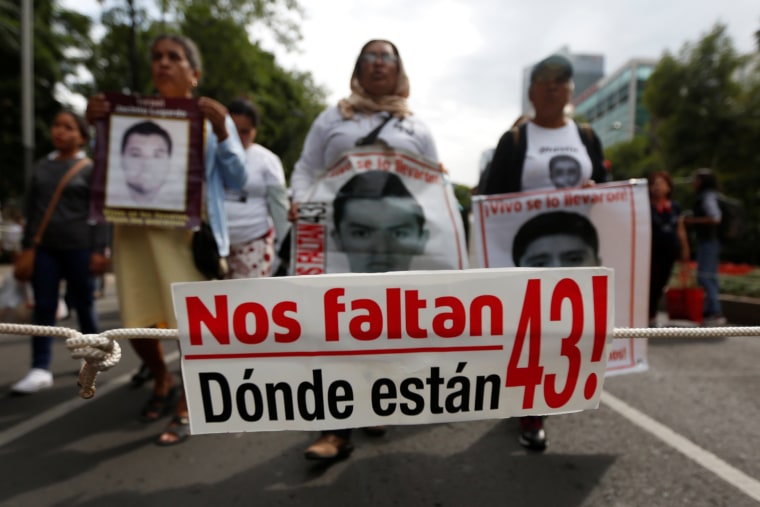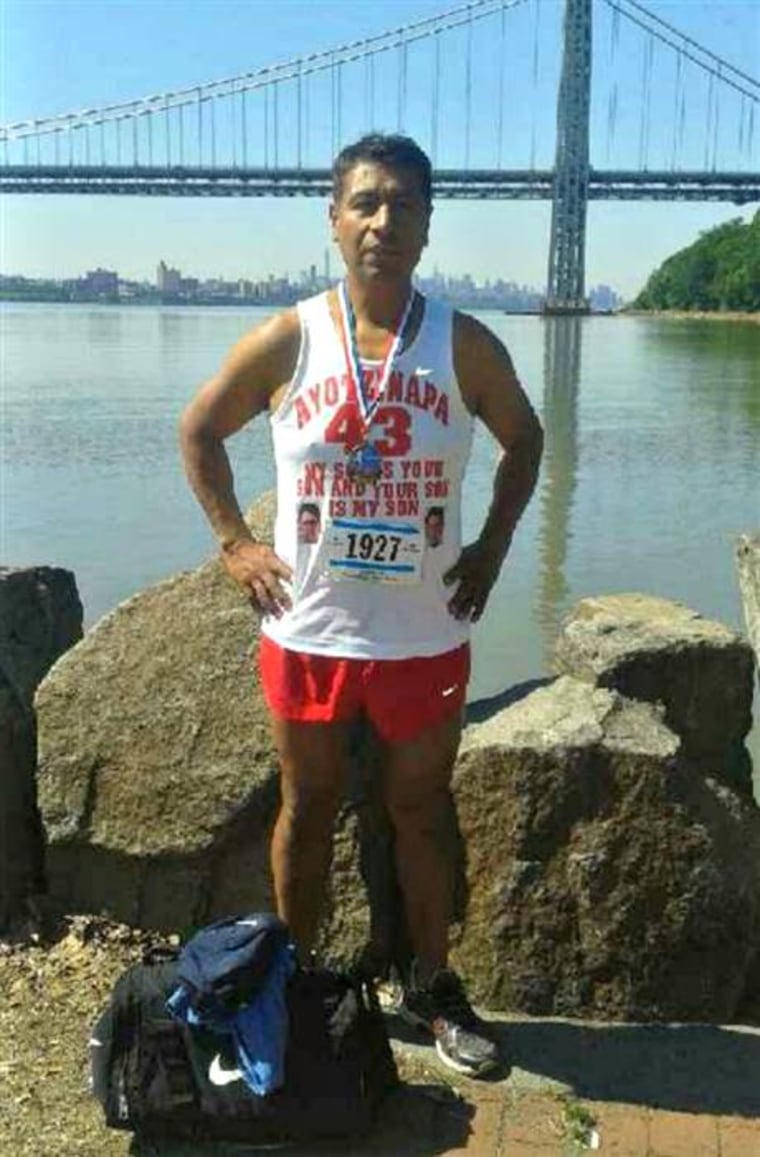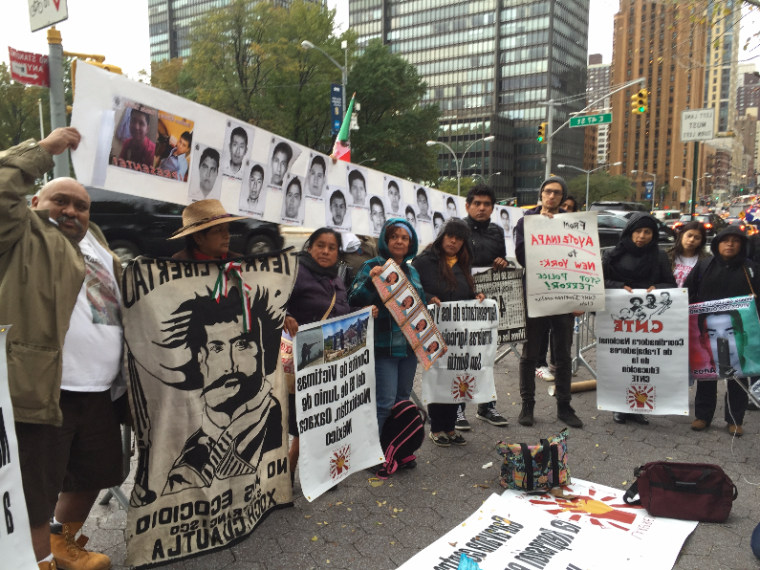Relatives and activists are rallying in Mexico and in the U.S. on Tuesday, still seeking answers in the case of 43 student teachers who disappeared three years ago after being taken into custody by police in Guerrero, Mexico.
While the case has stalled, and much of the news coverage about Mexico has moved on to other important stories like the devastating earthquakes that killed hundreds in the last two weeks, the parents of the 43 students have not stopped looking for their missing sons and seeking definitive answers to what happened.

In Mexico, families will march and hold a mass to remember the students as well as the victims of Mexico's earthquake.
In New York, relatives and activists are marching past the United Nations, the Mexican consulate and Times Square.
“I run like a father who is searching for his son,” Antonio Tizapa told NBC News. Tizapa is the father of Jorge Antonio Tizapa Leguideño, one of the 43 missing students. He runs in New York City races, including the upcoming November marathon, to rally support for Jorge and his classmates. The Ayotzinapa father wears a printed jersey that says: “Your son is my son and my son is your son.”

On the night of September 26, 2014, police with automatic weapons surrounded three buses that had been commandeered for a protest by students from the Ayotzinapa Teachers’ College. According to testimonies from survivors, the police started shooting at the unarmed students who then ran through the streets of Iguala in desperate search of shelter. By the time the gunfire was over, six people had been shot dead—the youngest was 15 years old, and 43 student teachers, among others, would eventually go missing.
The Mexican government initially concluded that the students were murdered after police—ordered by Iguala Mayor José Luis Abarca—handed them over to a drug gang named Guerreros Unidos (United Warriors), which then incinerated the bodies at a garbage dump. But an international team of forensic scientists contradicted the official report with evidence showing how suspects had been tortured illegally to obtain supporting testimonies.

The disappearance of the student teachers sparked massive protests in Mexico and abroad. And for Mexicans in particular, the Ayotzinapa case was a turning point, an awakening that defined un antes y un después (a before and after) which impacted their social consciousness.
“I don’t think we would have ever taken the Mexican government to trial or a place like the Commission of Human Rights without Ayotzinapa,” said Daisy Bugarin, a Mexican activist based in New York. “Ayotzinapa has become a platform to shed light on everything else the Mexican government is doing against human rights. It took Ayotzinapa to happen to help support other movements. And all the other movements recognize that.”
Even though Ayotzinapa symbolizes the breakdown or disillusionment of Mexican society, it has also empowered everyday citizens to fight for justice. And this sense of righteousness has emboldened the families and friends of the missing students to travel to the United States with the hope of finding common moral ground with other human rights causes.
“In the short time we have been here [in the United States], we have realized that many of the struggles we have at home are connected with what is going on in the U.S.,” said Eduardo García Magano, a student from the Ayotzinapa Teachers’ College, during a visit to New York in 2016. “Education reform and energy reform policies in Mexico are modeled after the U.S., and people on both sides of the border are facing similar issues.”
While the U.S.-Mexico border is often described as a battlefront for important issues like immigration, drug policy and crime, Ayotzinapa activists in Mexico and the U.S. say that the border is more like a mirror that reflects a larger human reality.
And as activists rally in New York City, the parents of the missing students hope that this larger human connection can help bring their sons, and thousands of other missing people around the world, home.
“You start running with your feet, but you finish with your heart,” said Tizapa. “I run for my son and his classmates, and other missing sons and daughters everywhere.”
